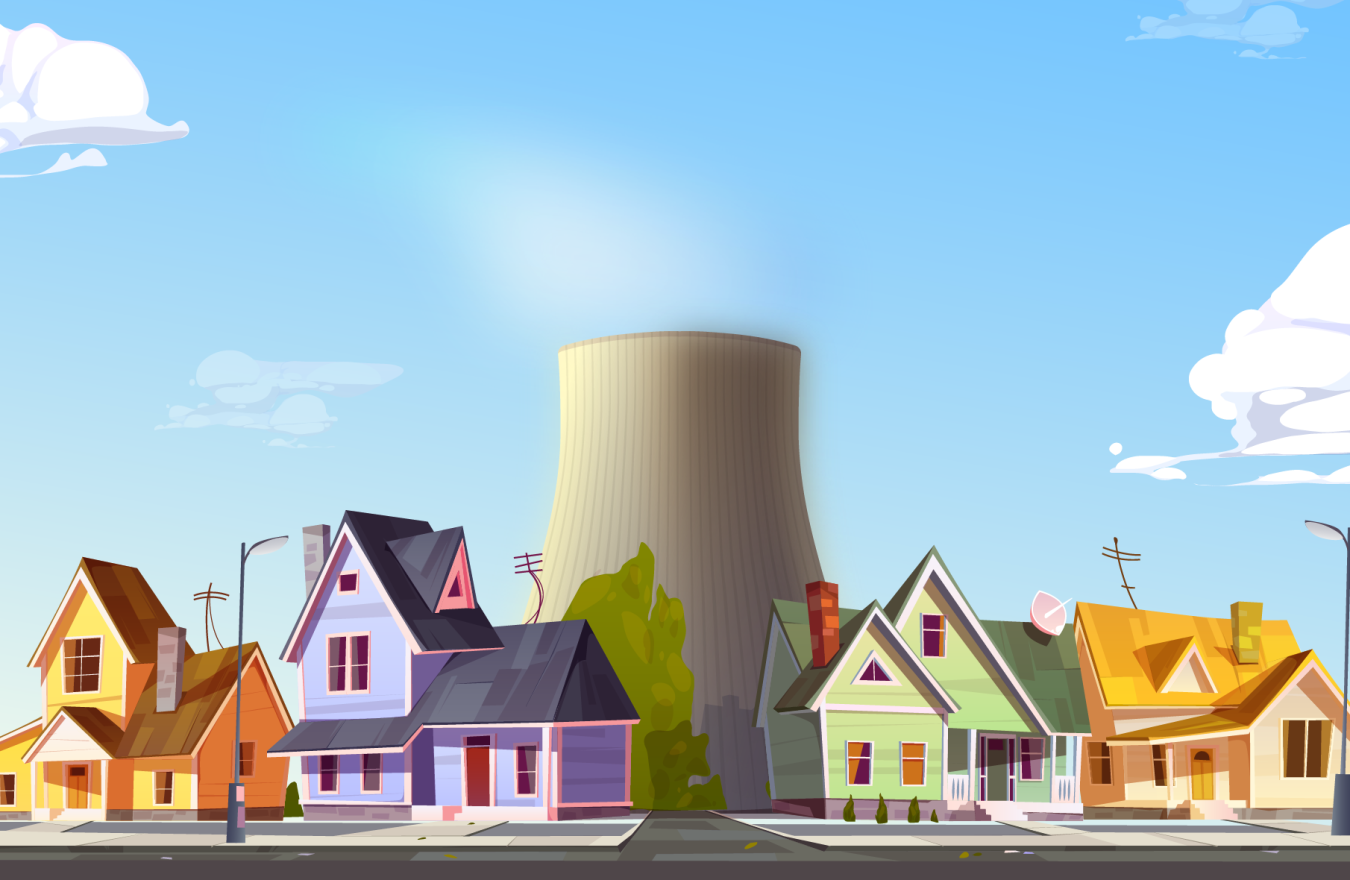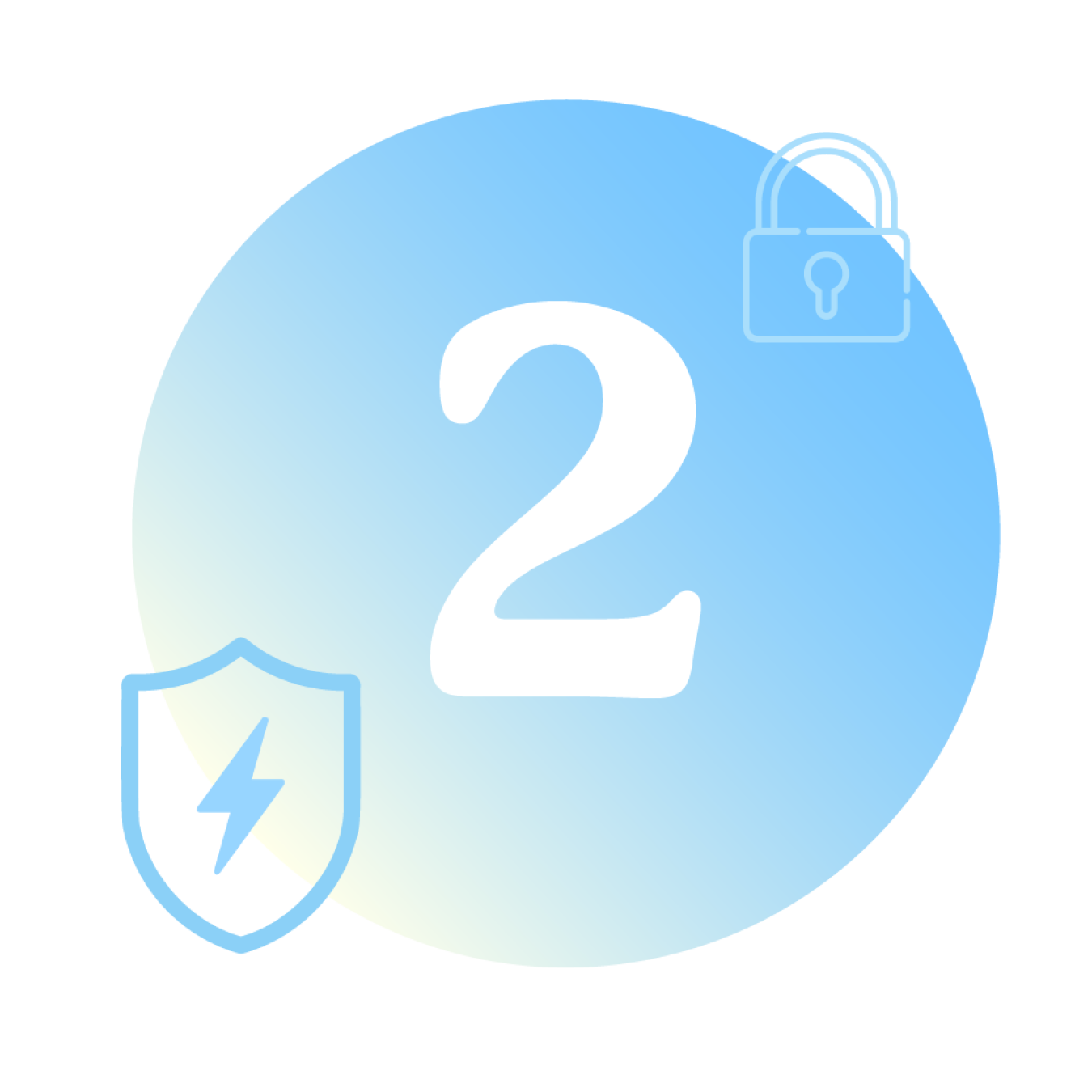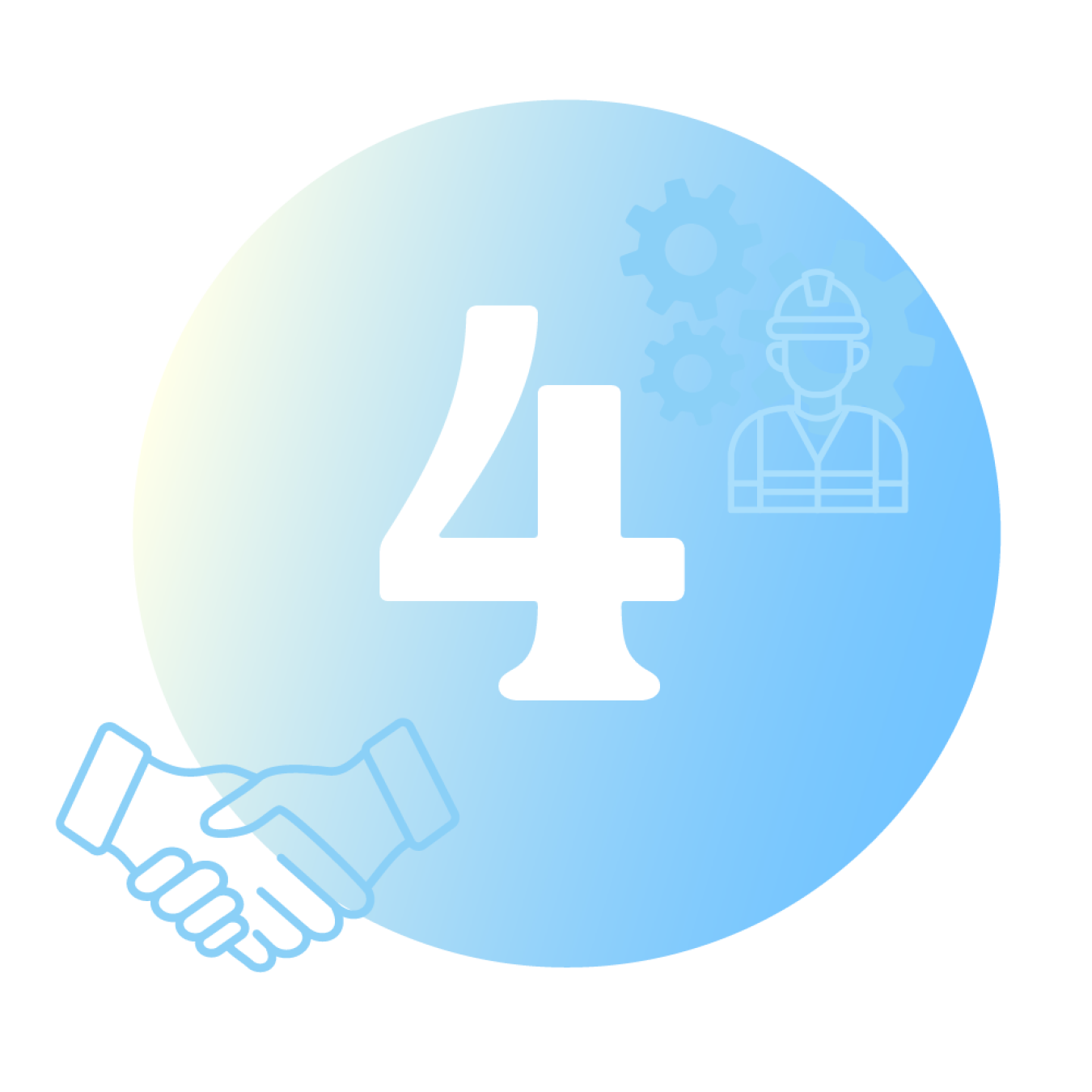Nuclear energy is clean, safe, reliable — everything you could ask for in a good neighbor.
June 13, 2024
The energy landscape in the United States is changing.
Nearly 1 in 3 American coal plants are projected to retire over the coming decade, and studies show that many of those retiring plants could be converted to nuclear energy.
That leaves many communities to wonder — would nuclear be a good neighbor?
After all, what makes a good neighbor?
Is it someone who’s reliable? Clean? Engaged in the community? Not too loud?
Would you believe that you can find all of those qualities in a nuclear power plant?
Just ask the vast majority of people who live in communities powered by nuclear energy: nuclear really is a good neighbor.
Read on for five reasons why:

Reason #1: Nuclear is clean
Nuclear energy provides nearly half of America’s carbon-free electricity and is the largest domestic source of clean energy.
Our nuclear fleet helps avoid more than 470 million metric tons of carbon emissions —the equivalent of removing 100 million cars from the road.
That means communities with nuclear power plants can breathe easier knowing that nuclear does not emit greenhouse gases while generating electricity.
Nuclear reactors produce power by boiling water to create steam that spins a turbine. The water is heated by a physical process called fission, which makes heat by splitting apart atoms of elements like uranium inside the reactor core.
Unlike coal or natural gas, nuclear plants don’t actually burn anything, so they don’t emit particulate pollution or greenhouse gases that accelerate climate change. In fact, U.S. Department of Energy research shows that converting a coal plant to a new nuclear power plant could reduce carbon dioxide emissions in the surrounding area by up to 86 percent.

Reason #2: Nuclear is safe
U.S. nuclear plants are among the safest and most secure industrial facilities in the world. They are designed, built, and operated according to rigorous safety standards and use redundant layers of protection to ensure safe operation.
Safety at commercial nuclear reactors in the United States is overseen by the Nuclear Regulatory Commission (NRC). The NRC sets stringent regulations for operations, security, and emergency preparedness at nuclear power plants and employs full-time on-site inspectors to make sure they are followed.
In the nearly 70-year history of civil nuclear power generation, with over 20,000 cumulative reactor-years of operation across 36 countries, there have been three significant accidents at nuclear power plants resulting in fewer than 30 deaths due to radiation exposure.
And the next generation of nuclear reactors will be even safer. Advanced reactor designs, some of which are ready for deployment, boast enhanced safety features and fuels that make them self-regulating and prevent the possibility of overheating. No matter what, the safety of nuclear plant employees and neighboring communities always comes first.

Reason #3: Nuclear is reliable
Nuclear power plants operate at full capacity more than 90% of the time. On average that’s about 1.5 to 2 times more reliable than natural gas and coal plants, and roughly 2.5 to 3.5 times more reliable than wind and solar.
Nuclear power plants are designed to run 24 hours a day, 7 days a week because they require less maintenance and can operate for longer stretches before refueling (typically every 1.5 or 2 years).
Advanced nuclear fuels on the horizon are expected to perform even better. They‘re designed to offer increased safety, durability, and could extend the time between refueling, which would also reduce the amount of spent fuel generated over the lifetime of a reactor.
Any time you need it, day or night, nuclear energy will be there for you. Now that’s a neighbor you can count on!

Reason #4: Nuclear is good for business
Nuclear energy drives job creation.
The U.S. nuclear energy sector directly employs 60,000 people in high-quality, long-term jobs — many of which don’t require a college degree.
It takes thousands of workers to build a nuclear power plant. An average plant employs between 500 and 800 people with salaries 30 percent higher than the local average.
According to NEI, for every 100 nuclear power plant jobs, 66 more jobs are created in the community. And nuclear plants contribute billions of dollars every year to their communities via federal and state taxes.
A national survey of communities with nuclear power plants found that over 90 percent of neighbors believe that nuclear energy provides good jobs for local people and helps the local economy.
And in communities considering a transition from coal to nuclear, converting a retired coal plant to a nuclear power plant could lead to additional annual economic activity of $275 million.

Reason #5: Nuclear keeps a low profile
Nuclear energy has one of the smallest footprints of any electrical generation source.
An average nuclear power plant requires about 1.3 square miles per 1,000 megawatts of energy, making it an ideal source of electricity in areas without large amounts of open space. And that footprint is expected to get even smaller with new small modular reactor and microreactor designs nearing deployment.
Nuclear power plants also don’t need massive infrastructure like pipelines, shipping terminals, or coal trains for fuel transportation and storage.
That’s because uranium fuel is extremely dense — one thimble-sized uranium pellet contains energy equivalent to:
- one ton of coal,
- 120 gallons of oil, or
- 17,000 cubic feet of natural gas.
U.S. commercial reactors have generated about 90,000 metric tons of spent fuel since the 1950s. If you could stack all of it together, it would fit on a single football field less than 10 yards deep.
DOE is working to address the nation’s spent nuclear fuel by moving forward with a federal consolidated interim storage facility project that would reduce the number of places where commercial spent fuel is stored.
The project will be guided by a consent-based siting process that puts the interests and concerns of local communities first — just what you’d expect from a good neighbor.

